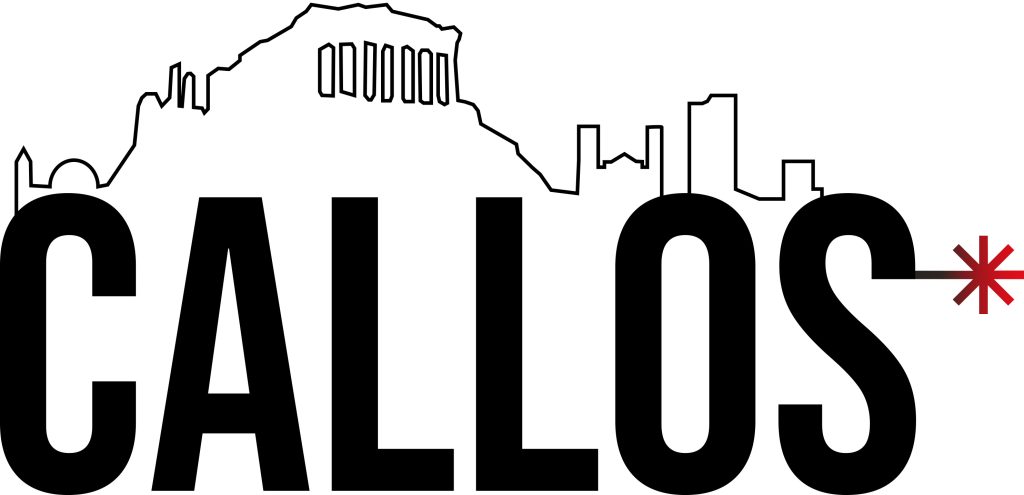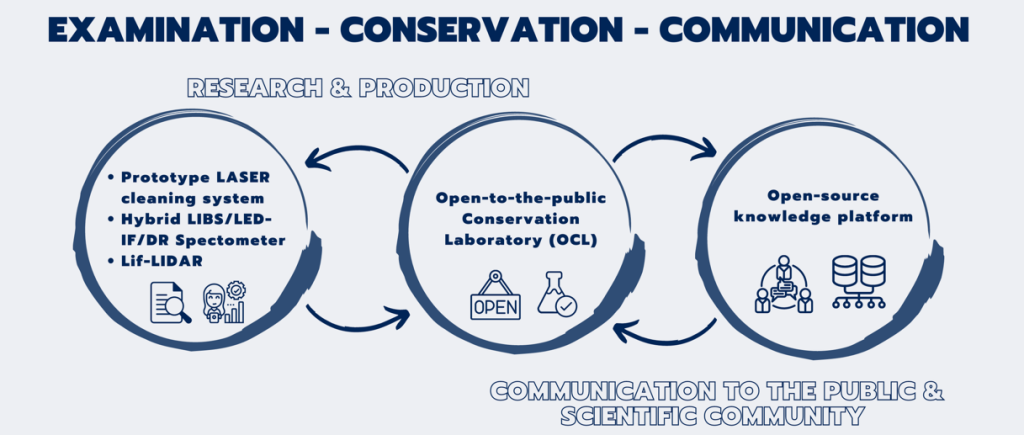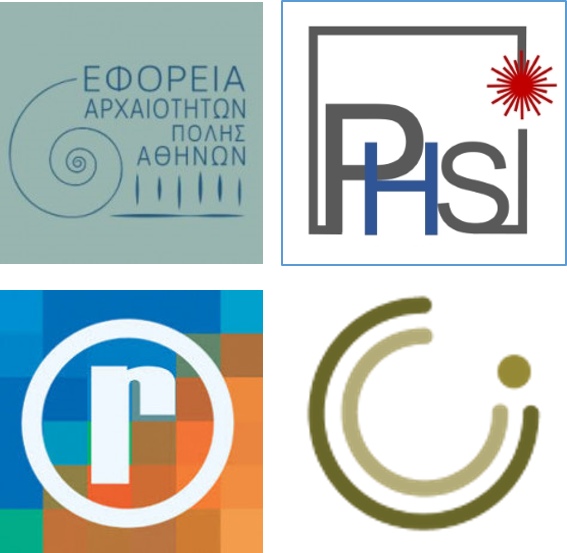CALLOS
CALLOS – CONSERVATION OF ATHENS ANTIQUITIES WITH LASER AND LIDAR TECHNOLOGIES OPEN TO SCIENCE AND PUBLIC

28/02/2020, to 27/02/2023

The project “Open Laboratory for the Conservation of Athens antiquities with LASER and LIDAR technologies”, acronym CALLOS (Conservation of Athens antiquities with Laser and Lidar technologies Open to Science and public), was included in the National Scope Action of NSRF/NRFNEK “Open Innovation in Culture” in 2020, with the Ephorate of Antiquities of Athens City (EFAPA), the Foundation for Research and Technology – Hellas (FORTH) and the company Raymetrics A. E.
“Download the leaflet for the CALLOS project here.”
The coordinator of the CALLOS Project is on The Ephorate of Antiquities of the City of Athens. At the same time, the “Photonics For Heritage Science” group of FORTH is responsible for its scientific supervision.
The Project duration is thirty-six (36) months.
C.A.L.L.O.S. aims to establish an open-to-the-public conservation laboratory located in the heart of Athens city at the premises of the Ephorate of Antiquities of Athens (EAA). This initiative, which deploys along the Restoration-Cooperation-Communication axes, envisages the development of a pioneering conservation workshop for the emblematic objects and monuments of the archaeological sites of Athens, equipped with innovative diagnostic and conservation methods and a digital repository for the effective handling and presentation of the produced data. Towards this end, EAA is collaborating with the Institute of Electronic Structure and Laser of the Foundation for Research and Technology – Hellas (IESL-FORTH) and the Greek company Raymetrics SA. The consortium will perform targeted research towards the development of modern, portable, and non-invasive methods and instruments for analysis, mapping, and cleaning, based on advanced optical and laser technologies, while it will broadly communicate its work to the researchers and the public through the digital repository and the knowledge database.

The objectives of the project are:
(a) development of portable spectroscopic analytical and mapping instruments based on innovative, reliable, and non-destructive laser technologies (LIBS, LIF, Reflectance, and LIDAR) aiming at the elemental and molecular study of extraneous materials (encrustations and corrosion layers), as well as their classification and mapping along the surfaces of indoor and outdoor monuments.
b) development of a transportable laser cleaning system for the controlled and effective removal of deposits and encrustations. The process will be followed in real-time using innovative monitoring methodologies based on the processing of photoacoustic signals, while portable laser analytical instruments may be also attached to assess on-line the cleaning process.
(c) design of demonstration facilities accessible to the public (OpenLab).
(d) development of a digital repository for the documentation, archiving, and management of the data acquired from the above-mentioned analytical techniques and a knowledge database open to the research community, the students and the public.
The developed methods and techniques are based on the need for reliable, fast, and non-destructive analysis and standardized procedures for the study and restoration of indoor and outdoor Cultural Heritage monuments. This collaborative scheme guarantees that the EAA’s OpenLab conservation laboratory will play a key role in the research, development, and implementation of new diagnostics and conservation technologies, while new conservation methodologies will be introduced to a number of different archaeological objects and surfaces.

These new methods can be effectively applied, without sampling, in-situ on the monument, or ex-situ, in the laboratory, thus reducing meaningfully complex and time-consuming procedures, while advancing and upgrading the conservation work of EAA. The effective handling of the produced analytical data and information into a digital repository and knowledge database is expected to boost the dissemination of results to the scientific community. Last but not least, this OpenLab is expected to significantly promote public awareness as regards cultural heritage study and restoration allowing a variable audience (students, families, scholars, people with disabilities, and senior citizens) to get familiar with analytical and restoration processes.
The proposed scheme is directly applicable, following a pre-defined three-year timetable. The consortium has the necessary experience in the fields of research, in which the project is being developed, namely implementation, education and communication. The project will be coordinated by EAA following a list of specific and well-defined work-packages.
Partners

- The Ephorate of Antiquities of the City of Athens
- Photonics for Heritage Science, IESL FORTH, Greece
- Raymetrics
- ISL & CCI- Information Systems Laboratory, Centre for Cultural Informatics, ICS FORTH, Greece
Funding

The Project CALLOS «Conservation of Athens antiquities with Laser and Lidar technologies Open to Science and public» (CALLOS) operates in the frame of the Special Action “OPEN INNOVATION IN CULTURE” and is co-funded by the European Regional Development Fund (ERDF) and national resources through the Operational Program “Competitiveness, Entrepreneurship & Innovation” (NSRF -EPAnEK) (project code MIS- 5056208).

